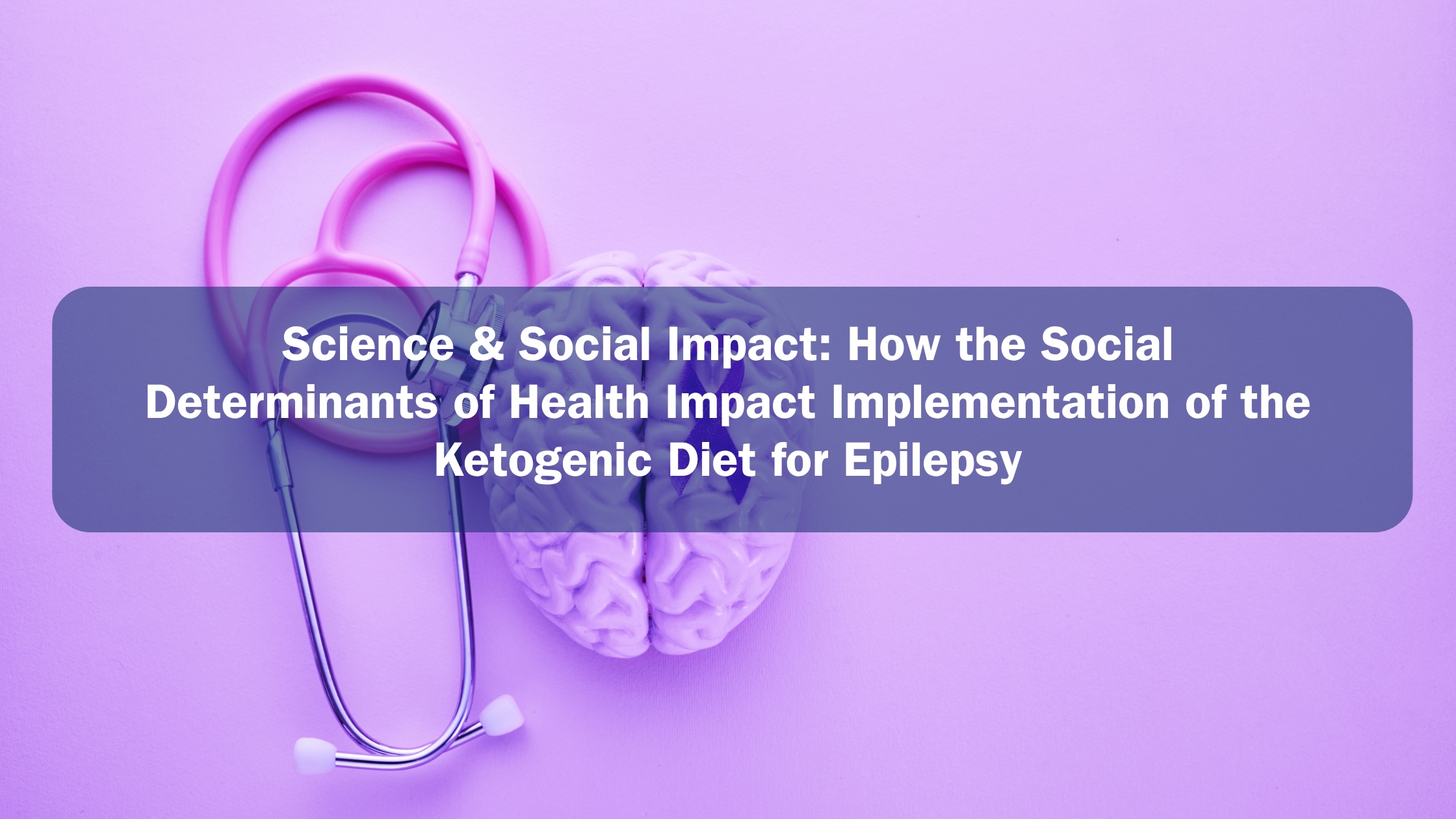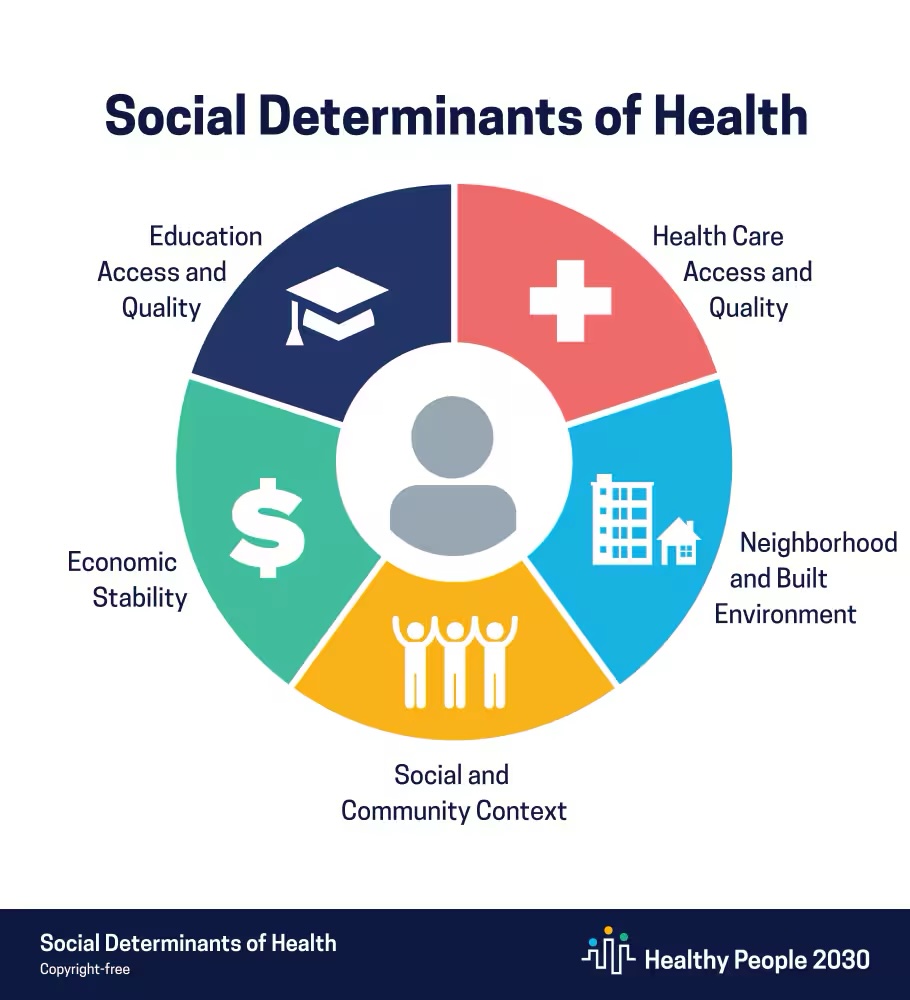Science and Social Impact

By Chloe Chavers & Ashlyn Taber
Over 450,000 children in the U.S. have an epilepsy diagnosis, making it one of the most common neurological disorders in the world.1 Extensive evidence suggests that the ketogenic diet reduces the frequency and severity of seizures in this pediatrics, and families face challenges when implementing ketogenic diets with children.2,3,4 Our research takes these known correlations one step further by defining common barriers to long-term diet adherence and also connecting each challenge to the social determinants of health – education access and quality, economic stability, healthcare access and quality, social and community context, and neighborhood and built environment. The study aims to explore the impact of social determinants of health on these families.
Ninety parents (>18 years of age) of children who have been diagnosed with any form of epilepsy were recruited via snowball sampling methods through epilepsy organizations and support groups. We developed a survey with a mixed methods approach to understand the challenges that families face, which were analyzed with descriptive statistical analysis and thematic coding. Of the 90 participants, 66% had a child who was adhering to, or had once adhered to, the ketogenic diet. Of those, 62% learned about the ketogenic diet from a registered dietitian nutritionist (RDN). Participants believed that social life impacts were their child’s primary barrier to following the ketogenic diet, especially experiences at school, holidays, and traveling. Parents’ primary barrier providing the ketogenic diet was time commitment for preparing food, planning meals outside the home, and understanding the diet’sguidelines. Thematic coding of parents’ free text responses revealed that navigating food preferences was a common obstacle for both parents (33%) and children (25%). Twenty-one parents had never attempted the ketogenic diet with their child due to lack of education (43%), perceived likelihood of child compliance (33%), time demand (19%), and cost (14%).

Three of the five social determinants of health played a role in families' abilities to implement and adhere to the ketogenic diet outside of in-patient settings. Participants expressed a desire for more knowledge about the ketogenic diet, including nutrition education. Difficulties with the cost of groceries and reduced income due to caregiver responsibilities were the primary factors related to economic stability. Obstacles surrounding social and community context were indicated by participants. They described difficulty navigating gatherings involving food, like school or birthday parties.
Application of these research findings in healthcare should begin with individualized care. When recommending the ketogenic diet, initiating a whole-systems approach is essential. While there are known benefits to the ketogenic diet for epilepsy, there are physical and mental complications of restrictive diets for children. Assessing a family’s level of education, social circumstances, economic status, and healthcare access related to delivering a ketogenic diet can identify resources that further support diet adherence. Overall, the ketogenic diet for pediatric epilepsy necessitates a multi-faceted treatment approach to anticipate and address barriers in order to best support families in their treatment choices.
References:
- Data Research Center. 2022 National Survey of Children's Health. Accessed February 2, 2024.https://www.childhealthdata.org/browse/survey/results?q=10071&r=1
- He F, Ye L, Wang L, et al. Ketogenic diet therapy leads to antiseizure medication reduction in children and adults with drug-resistant epilepsy. CNS Neurosci Ther. 2024;30(7).https://doi.org/10.1111/cns.14854.
- Karandienė J, Endzinienė M, Liaušienė K, Jurkevičienė G. The assessment of the efficacy, safety, and challenges of ketogenic diet therapy in children with epilepsy: the first experience of a single center. Medicina (Kaunas). 2024;60(6):919.https://doi.org/10.3390/medicina60060919.
- Neri LC, Guglielmetti M, Fiorini S, et al. Adherence to ketogenic dietary therapies in epilepsy: A systematic review of literature. Nutr Res. 2023;126:(67-87). https://doi.org/10.1016/j.nutres.2024.03.009
